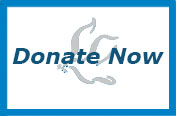by Dr. David Elseroad
The Quest to Know Oneself
This fall, students of all ages are headed back to either virtual or in-person school, preschool on up to graduate school, as well as night classes and self-improvement courses. Many will also begin or continue their “schooling” in mental health therapy. Talk therapy (or counseling) can perhaps best be understood as education, a learning about one’s self. Given that education is a quest for knowledge and skills so central to life today, the quest to know one’s self in a much more focused and intentional way must be a priority. Therapy gives us this unique opportunity!
Getting Nowhere
People come to therapy with all sorts of concerns—anxiety, depression, anger, relational and family issues, mood swings, addictive behaviors and many others. But as these concerns are discussed, the individual’s sense of self that underlies them emerges—a self that is invariably barely known, or denigrated or dismissed, or kept hidden away. You may discover that you don’t really know yourself, or that you don’t really like yourself, or that you don’t have much confidence in yourself. Many a client complains of being “stuck,” going around in circles and getting nowhere, of not being heard or heeded, of not accomplishing anything, of not living the life that they want.
A Look at Who You Really Are
Personal empowerment begins with the self. At its most basic, empowerment means “becoming powerful.” Everyone has strengths and weaknesses (aka “growing edges”) and a range of skills used in everyday situations, but often people remain unaware of, or undervalue, their true self and personal abilities. Empowerment is about looking at who you are and becoming more aware of yourself as a unique individual. It involves developing the confidence and strength to set realistic goals and pursue them with determination. As we discover and reflect on our values, skills and goals in our counseling conversations, and as we adjust our behaviors in order to achieve our goals, we grow in self-awareness, self-esteem and self-confidence. We get “unstuck” and are free to “get somewhere”!
The Empowerment Ladder
Being “enabled” involves outside control; it is the antithesis of “empowered.” It is true that a newborn baby must be enabled to survive. But the wise parent brings a child from a place of enablement into maturity as an empowered human being. Empowered people are able to care for themselves in relational community; are aware of self and others; create their own goals; want to change and believe they can; and act on choices freely made with all the consequences, risks and rewards that follow. “You will receive power…” (Acts 1:8) is a promise from God that we can embrace. Knowing ourselves free and valued before God, and through the special “education” that therapy avails, we can say with St. Paul, “I can do all things through Christ who empowers (strengthens) me” (Philippians 4:13). On that empowerment ladder, whatever our goal, we’ll own it, initiate it, build it, maintain it and grow it!
.

The Rev. Dr. David Elseroad LMFT, is pastor of Trinity Lutheran Church in Hawthorne, NY. Dr. Elseroad, a Licensed Marriage and Family Therapist, is fluent in French and Spanish. His professional background includes work in multicultural ministries and experiences as pastor, hospital chaplain, missionary and teacher.
For a counseling appointment, call LCC at 800-317-1173


